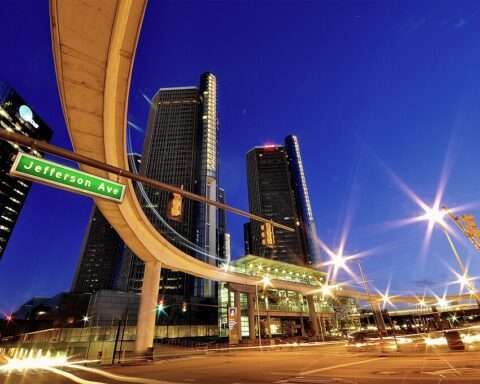Pennsylvania is making a $274 million investment on 30 infrastructure projects spanning drinking water, wastewater, stormwater and nonpoint source (NPS) initiatives across 22 counties. These include replacing lead or corroded pipes, revamping aging water systems, growing service capacities and expanding access.
As regulatory standards for water quality have shifted with new data being considered by the Environmental Protection Agency (EPA), upgrading these systems has become a priority that also includes Per- and Polyfluoroalkyl Substances (PFAS – also called “forever chemicals”) abatement and adding agricultural Best Management Practices (BMPs).
NPS pollution is the primary cause of water-quality issues in the U.S., affecting drinking water, recreation, fisheries and wildlife. To combat this, the NPS program advocates for watershed planning to safeguard and rejuvenate water resources, including bioretention systems, floodplain and stream restoration, wetland creation and reforestation.
Funding sources include state revenue approved by voters, Growing Greener funds, Marcellus Legacy funds, the Infrastructure Investment and Jobs Act (IIJA) stimulus package, federal grant awards from the EPA under the Clean Water Act and the Safe Drinking Water Act Amendments, and recycled loan repayments from prior PENNVEST funding allocations.
“For more than 36 years, PENNVEST has been dedicated to the mission of providing resources for clean water across the Commonwealth. In those three decades, we have seen communities grow, aging towns and cities revitalized, and farmers take a stronger approach to responsibly managing land,” PENNVEST Chairman Dr. Brian Regli said. “As a result, today we cross the threshold of $12 billion invested in clean water projects by PENNVEST.”
Projects include:
Drinking water
- The Indiana County Municipal Services Authority received an $8.7 million grant and a $5.4 million loan to extend service and create efficiencies through system consolidation. The project addresses four waterlines as well as the East Pike Pump Station, which will be demolished and replaced by a prefabricated, above-grade pump station with two pumps, telemetry and metering, and a hookup for a mobile generator for power outages.
- The Altoona Water Authority received a $7.5 million loan to replace aging cast-iron waterline serving the City of Altoona as well as Logan, Allegheny and Frankstown townships. The authority faces continual repairs from breakage and leaking issues, outages, pressure drops, loss of water and dirty water.
- Aqua Pennsylvania Inc. received a $6.8 million grant to install PFAS filter vessels, three new low-lift pumps to push treated water through the vessels, and a holding tank to equalize backwash prior to disposal. The project will minimize the presence of Perfluorooctanoic Acid (PFOA) and Perfluorooctanesulfonic Acid (PFOS) and bring the well into acceptable levels as determined by the state.
Wastewater
- Philadelphia received a $77.5 million loan to build a treatment facility to reduce ammonia discharge at a water pollution control plant’s biosolids recycling center. The Southwest facility construction plan includes capacity equalization tanks and bioreactors to remove ammonia. Influent ammonia should be reduced by approximately 75%.
- Amity Township received a $20.4 million loan to upgrade and expand its wastewater treatment plant. System upgrades include automatic screening, influent pumps, waste activated sludge (WAS) and return activated sludge (RAS) pumps, and a chlorine disinfection system to introduce ultraviolet disinfection. This project will bring the plant into compliance with effluent limits.
- Danville Municipal Authority received a $6.5 million grant and a $10.4 million loan to replace a 50-year-old pump station, force and gravity mains, and upgrade dewatering and digester equipment. The new pump station will include two submersible pumps, a generator and related hardware, with a new dewatering building also being constructed.
Stormwater
- Hershey Lumberyard received a $2.9 million loan to construct a new storm sewer system in the former industrial lumber operation site being planned for redevelopment. The project will also include extensive paving in the storm trench, addressing unsuitable soils, site preparation and restoration, demolition of existing asphalt and concrete pads, and rock removal. This project will alleviate ongoing flooding issues adjacent to and downstream of the project site.
Nonpoint Source
- Capital Region Water received a $13.3 million loan for a Green Stormwater Infrastructure (GSI) project in the City of Harrisburg. All four phases of this work incorporate GSI strategies, reducing bacteria, sediment, nutrient loads and suspended solids caused by combined sewer overflows.
- Huntingdon County Conservation District received a $2.6 million loan for BMPs at Conrad Family Farms. The project will allow animals housed at satellite farms to return to the home farm, with reductions in nitrogen, phosphorus and sediment that impact a high-quality cold-water fishery and listed as an impaired waterway.
- Bethlehem Township Municipal Authority received a $5.5 million loan to improve stormwater management by retrofitting three stormwater detention basins and creating a fourth, all for the purpose of acting as water-quality bioretention facilities with additional water storage capacity. The project addresses a critical safety hazard by mitigating the risks associated with frequent flooding.













